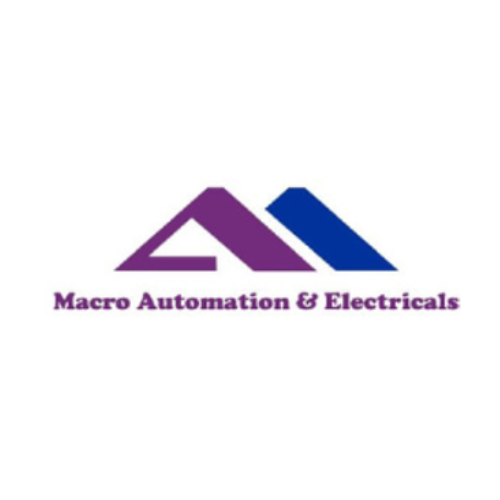- +91 9886004169
- info@unisolcommunications.com


Building management system technology stands at the core of modern smart buildings, functioning as a comprehensive and centralized platform that integrates diverse building operations. Designed to optimize heating, ventilation, air conditioning (HVAC), lighting, energy management, fire alarm monitoring, and security systems, a BMS delivers automated control, real-time monitoring, and analytics for enhanced efficiency and sustainability.
These intelligent systems use a combination of sensors, controllers, actuators, and networked interfaces to collect data and adjust operations dynamically. For example, occupancy sensors can dim or switch off lighting in unused areas, while temperature sensors adjust HVAC settings based on real-time environmental conditions. This level of automation not only increases occupant comfort but also minimizes energy waste and reduces operational costs.
A modern building management system enables facility managers to monitor building performance remotely via mobile apps or web-based dashboards. Alerts and reports on equipment health, environmental conditions, and energy consumption empower proactive maintenance and rapid troubleshooting. By analyzing data trends, a BMS facilitates predictive maintenance—reducing the likelihood of equipment failure and extending the life of mission-critical assets.
Integration with fire alarm monitoring systems ensures a unified, safety-centric platform. When a fire alarm is triggered, the BMS can automatically initiate alerts, control emergency lighting, shut down HVAC systems to prevent smoke spread, and manage access control to evacuate occupants efficiently. This seamless coordination between safety systems enhances building resiliency and safeguards lives.
Energy management features within a building management system are essential for cost savings and achieving sustainability goals. By optimizing energy usage through demand-controlled ventilation, intelligent scheduling, and load-shedding during peak usage times, a BMS significantly lowers utility bills and carbon footprint. In addition, integration with renewable energy sources—such as solar panels or on-site battery storage—allows for intelligent balancing of grid power and self-generated energy.
Critical room monitoring is another key application. Data centers, pharmaceutical labs, and hospital operating theaters require constant temperature, humidity, and pressure control. A BMS can tightly regulate these environments, providing automated alerts if conditions deviate from acceptable thresholds. This not only ensures compliance with industry standards but also preserves sensitive equipment and processes.
Water treatment and outlet control benefit from similar automation—flow meters, pressure sensors, and chemical dosing systems are managed by the BMS, preventing leaks, ensuring water quality, and conserving resources. Diesel generator monitoring is also important; the BMS tracks fuel levels, runtime performance, and failure alarms, alerting maintenance teams to service requirements before emergencies occur.
A well-designed building management system supports scalability and modular deployment. As buildings expand or requirements evolve, new systems and sensors can be seamlessly integrated. Our BMS solutions at Unisol are modular and platform-agnostic, ensuring interoperability with third-party devices and futureproofing installations.
Security is enhanced through centralized access control and video surveillance integration. A BMS can lock or unlock doors based on schedules, badge access, or emergency lockdown protocols. It can coordinate with intrusion detection systems to manage alarms and notify security personnel in real time, reducing response times and improving facility safety.
Occupant comfort and experience are enhanced as well. Smart scheduling and integration with booking systems can pre-heat conference rooms before meetings. In hotels, guest-room automation adjusts lighting and temperature based on check-in status. In offices, personalized comfort settings along with adaptive lighting promote productivity and wellbeing.
Our building management system solutions are tailored to support industry-specific compliance. In industrial environments, compliance with ISO standards or SCADA requirements is essential. In healthcare facilities, adherence to ASHRAE standards and hygiene protocols is critical. Educational campuses require zone-based access and energy control to match usage patterns across classrooms, auditoriums, and sports facilities.
Remote access capabilities mean that our clients can manage their buildings efficiently from anywhere in the world. During off-hours or holidays, facility managers can adjust HVAC schedules, override equipment states, or receive alerts about system faults. This flexibility ensures continuous operation and quick resolution of any issues.
Data analytics and reporting are core strengths of a BMS. Automated generation of energy reports, carbon emissions tracking, and equipment uptime statistics help building owners demonstrate sustainability achievements and meet ESG requirements. Trend data assists in long-term planning and budgeting, while analytics can identify underperforming systems or inefficient usage patterns.
Our BMS installations also include comprehensive training for in-house teams. We provide user interfaces that support role-based dashboards, allowing operators to manage lighting, HVAC, or security independently. Customizable views and alarm filters help teams focus on priority events and maintain control over their operations.
Maintenance and support are cornerstones of our service offering. We conduct periodic health checks, firmware updates, and device calibration to keep systems responsive and compliant. Emergency support is available 24/7, ensuring that building functionality is never compromised.
Unisol’s building management system solutions cater to a wide range of sectors. For offices and commercial complexes, we optimize energy efficiency and streamline occupant comfort. In hospitals and labs, we support stringent environmental controls and emergency integration. Industrial clients benefit from SCADA-level monitoring and preventative maintenance. Residential high-rises enjoy smart amenities and resource management.
By investing in a BMS, clients gain intensive centralized control, energy savings of up to 30%, reduced downtime, and improved occupant satisfaction. In addition, compliance with regulations—such as local building codes, fire safety standards, and LEED or BREEAM certification—is facilitated.
In a world increasingly focused on carbon reduction and smart infrastructure, a building management system is not a luxury—it’s a necessity to remain competitive, sustainable, and efficient. Unisol combines deep technical knowledge with expertise in design, integration, and support to deliver systems that align with long-term facility goals. Our solutions ensure that buildings operate optimally, respond swiftly to incidents, and adapt intelligently to occupants’ needs.
With a proven track record in energy management system deployments, HVAC monitoring, fire alarm monitoring, water treatment integration, diesel generator supervision, and critical room control, Unisol delivers holistic building management system projects from design through to service. Whether retrofitting an older asset or commissioning a greenfield development, our BMS solutions help clients achieve peak performance—and peace of mind—today and well into the future.
+91 98860 04169
+91 98440 65605
info@unisolcommunications.com































Unisol believes in transparency. Take a look at our ongoing projects that are currently making a difference
Manufacturing Initiatives


Copyright © 2025 | Unisol Communications Pvt Ltd. | All rights reserved.